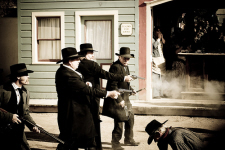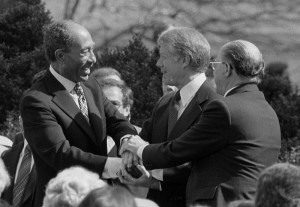 The L.A. Times published an op-ed on Monday touting Randolph Roth’s recent book, American Homicide (Wash. Post review). Roth is a historian at OSU who studies violence and social change, a subject I am intensely interested in as well. In American Homicide, Roth argues that the homicide rate in the United States tends to spike not as a result of gun ownership or poverty, but when people lose faith in their government. He claims that the first such notable rise in violence occurred in the aftermath of the Civil War, “a catastrophic failure in nation-building,” when a significant proportion of the population became extremely suspicious of their fellow Americans.
The L.A. Times published an op-ed on Monday touting Randolph Roth’s recent book, American Homicide (Wash. Post review). Roth is a historian at OSU who studies violence and social change, a subject I am intensely interested in as well. In American Homicide, Roth argues that the homicide rate in the United States tends to spike not as a result of gun ownership or poverty, but when people lose faith in their government. He claims that the first such notable rise in violence occurred in the aftermath of the Civil War, “a catastrophic failure in nation-building,” when a significant proportion of the population became extremely suspicious of their fellow Americans.
If true, that thesis bodes ill for our current situation, in which oddly apocalyptic rhetoric over ostensibly ordinary government actions seems to be on the rise. Loss of a debate now seems to no longer be an invitation to try harder next year, but rather conclusive evidence that the entire system is corrupt. While some have expressed the fear that such rhetoric will lead to large outbursts of explicitly anti-government violence, such as that planned by the militia members recently arrested in Michigan, the connection between overwrought rhetoric and such extremists seems tenuous at best. What seems more likely is that heated rhetoric augurs simply more violence, not violence directed at a particular target.
But predicting the future is treacherous business; it is far safer to try to explain the past. And Roth’s thesis, as I understand it (I haven’t read the book), helps explain some aspects of a phenomenon I’ve been interested in for a while now—the outbreak of violence in Tombstone, Arizona in 1881 and 1882, usually referred to as “the Gunfight at the O.K. Corral.”


